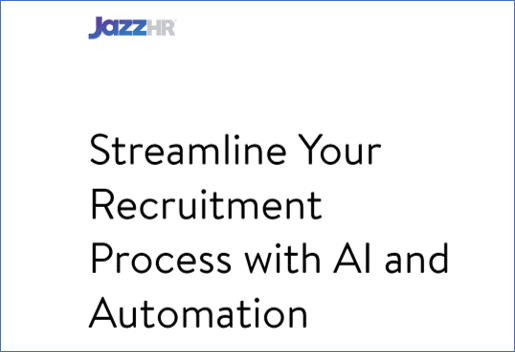After having hundreds of discussions with HR leaders on the emerging regulations of hiring tools, there has been one common misconception that is helpful to discuss: many HR leaders have told us that they simply don’t use AI in their systems. Unfortunately, upcoming regulation of automated hiring systems goes significantly beyond “just AI.” Indeed, we at Proceptual in our compliance work generally talk about “automated hiring tools” instead of AI.
What Is Specifically Being Regulated?
Let’s discuss the two most applicable regulatory bodies and how they are thinking about defining the toolsets to be regulated.
New York Local Law 144
New York City’s Local Law 144 goes into effect on July 5, 2023. It regulates what it calls “automated employment decision tools (AEDT).” It defines these tools quite widely, but to summarize, an AEDT:
- Uses “machine learning, statistical modeling, data analytics, or artificial intelligence” in order to…
- “substantially assist or replace discretionary decision-making”
Let’s break that down a bit. When the text of the law mentions “statistical modeling” and “data analytics”, that encompasses a very wide range of analysis — way beyond what could be considered AI! New York is focused on any computer-aided process that effectively makes decisions in any part of the hiring funnel, regardless of what the underlying technology is called.
EEOC
EEOC has recently taken a strong interest in regulating automated hiring systems, naming the issue as one of 3 regulatory priorities for the next 3 years. EEOC recently released a substantial document discussing the issue, which is required reading for employers.
Employers are used to navigating the requirements of federal regulation like Title VII, ADA, and others. EEOC has been quite clear that those laws still apply to what they call “algorithmic decision-making tools.” For EEOC, then, the distinction between AI and anything else isn’t important — if an employer is using tools who discriminate, they are at risk.
So What Tools Are Being Regulated?
First, HR leaders should think carefully about the entire list of tools they use in the hiring process. It’s better to think broadly at the start of this process. In our work, we have seen the vast majority of tools to which the law applies fall into the following categories:
- Resume sorting, prioritization, or filtering — particularly within an employer’s ATS. Nearly every employer uses a ATS system. If your system displays to hiring managers a sorted, ranked, or ordered list of applicants, it’s likely the law will apply
- Pre-hire assessment. Most employers also use some kind of assessment, particularly for entry-level or part-time applicants. Assessments which assign a score or ranking to candidates based on an internal algorithm likely will trigger the law. This will be especially true when the assessment is not a direct measure of hard job-required skills
- Interview tools. A few years ago, there was a trend in HR tools which purported to judge some factor of an applicant based on an algorithm’s judgement of their recorded interview. These tools tended to work poorly and exhibited significant bias, so they are becoming less popular
AI Is Becoming Much More Widespread
Let’s set aside the question of whether a particular employer uses AI today. The reality, from watching how HR tool vendors have reacted to the exploding interest in AI, is that many systems will include AI even if they didn’t when the vendor was first chosen.
For example, Jazz HR is a very widely used, mainstream applicant tracking system (ATS). Here is featured image from their site:

To be very clear, Jazz is a very widely used and totally mainstream HR product.
It will be very challenging for employers to argue to regulators that their systems do not come under the umbrella of an automated algorithm when those systems themselves claim to be AI!
As the tapestry of local, state, federal, and international regulation becomes more complicated, it’s helpful to remember what EEOC has made clear. When it comes to hiring discrimination, regardless of the technology used, you can’t blame the algorithm!
Proceptual provides compliance solutions for emerging regulation of automated and AI-powered hiring tools.

